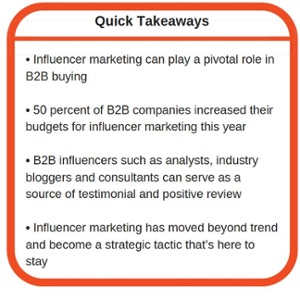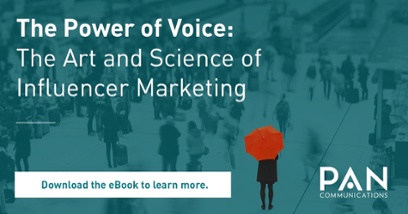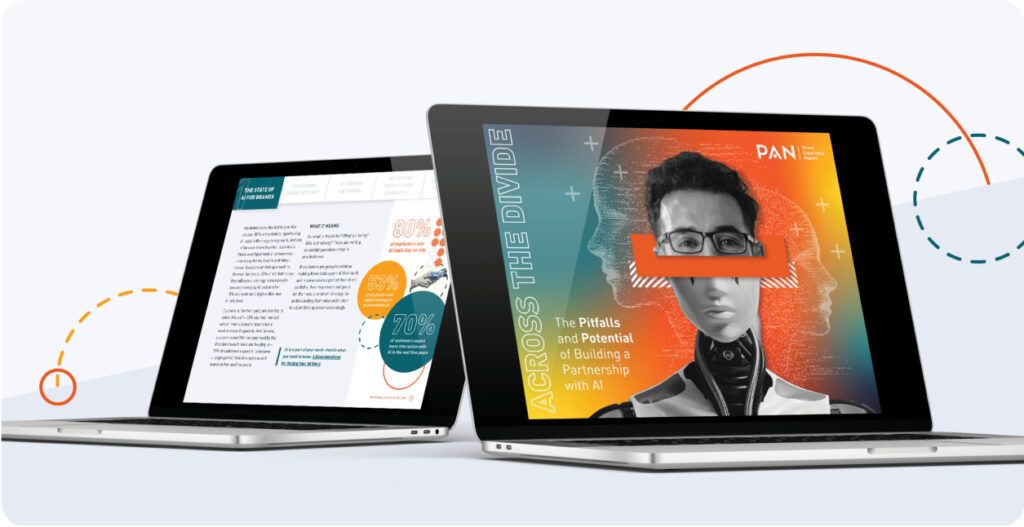 For many, when they think of the term influencer marketing, Instagram accounts posting photos of exotic hotels, interesting foods, the latest fashion trends, or simply a body-less hand holding a perfectly filled cup of cold brew, often comes to mind. When influencer marketing began gaining popularity, it was a prime location for consumer brands to reach widespread audiences, tapping the hundreds of thousands, millions, or even billions of followers influencers have across a variety of social media platforms. The ability to connect with target audiences in places where they spend a lot of time – their mobile phones, for instance – presented a new and unique opportunity for consumer brands to work with influencers to increase popularity, brand loyalty and even sales.
For many, when they think of the term influencer marketing, Instagram accounts posting photos of exotic hotels, interesting foods, the latest fashion trends, or simply a body-less hand holding a perfectly filled cup of cold brew, often comes to mind. When influencer marketing began gaining popularity, it was a prime location for consumer brands to reach widespread audiences, tapping the hundreds of thousands, millions, or even billions of followers influencers have across a variety of social media platforms. The ability to connect with target audiences in places where they spend a lot of time – their mobile phones, for instance – presented a new and unique opportunity for consumer brands to work with influencers to increase popularity, brand loyalty and even sales.
As this type of marketing gained traction in the consumer space, it didn’t quite catch the same fire in the B2B world. Perhaps it wasn’t seen as useful to the types of sales and experiences B2B vendors are after, or perhaps it was that the B2B space was already working with influencers in the form of industry analysts and reports from well-known research firms. Whatever the reasons, it’s become apparent in more recent years that influencer marketing has permeated its way into the B2B strategy. A recent survey from Forrester even found that 50 percent of B2B companies increased their budgets for influencer marketing this year.

With many enterprises now deeply enmeshed in their digital transformations, business is becoming more… well… digital. On top of this, more and more companies are demanding e-commerce options for purchasing the tools and technologies they need, rather than solely going through a salesperson. Plus, they are looking even more than before to the advice and experiences of their peers and third-party experts and advocates – gathering information from outside sources to help make decisions around the vendors they are considering making purchases with.

There are several trends pointing to why influencer marketing is getting its time in the spotlight in B2B.
Here are a few of the key game changers:
Businesses don’t browse, they shop for the long term
Consumers tend to buy quickly, usually after very little interaction or exposure to a product or brand. A couple of photos on Instagram or a quick YouTube video might be enough to hook a consumer to make a purchase. B2B purchases, however, are part of long-term business goals, so they carry much more commitment along with them.
B2B commerce is also much more than a simple purchase. Buyers and decision makers go through a longer process of research before even approaching a vendor to do business. This research stage is where influencer marketing can play a pivotal role in B2B buying. Their social media feeds, blogs and speaking engagements serve as a key part in the research a company does to decide not only what tools and technologies they need – but also which companies offer the best solutions for meeting their goals. In this regard, any B2B vendor not working with an influencer may be missing out on new opportunities to capture key buyers.
Brand awareness and loyalty is just as important in B2B
Research has shown that testimonials and reviews not only drive new customers to a company’s products and services, but also boost their continued purchases and trust in the brand. B2B influencers such as analysts, industry bloggers and consultants can serve as a source of testimonial and positive review, supporting businesses by factually backing up why a certain company is ahead of the competition and a better choice for purchase. Additionally, the authority, respect and authenticity B2B influencers have carries much more weight in securing customer loyalty, as their expertise in a certain niche is already regarded as relevant and impressive by decision-makers in that space.

The ‘everything at your fingertips’ mentality
One of the key draws for consumer brands with influencer marketing is that videos and images can be set up to offer immediate purchase options of the specific product being featured. All a user has to do is click an image or a link in a description box and they’re given a direct line to make a purchase – no hassle, no lengthy navigation process. The buyer mentality in B2B has taken on a similar persona. These decision-makers want quick access to where they can easily get information and buy the things they need for their businesses. Influencer marketing has become a direct tactic for vendors to offer this for their customers.
It’s clear that influencer marketing has moved beyond trend and become a strategic tactic that’s here to stay – for both B2C and B2B. It’s expected to continue growing in B2B, so it’s important that companies get proactive in making influencer marketing a part of their overall strategy. Customer centricity will be important to making this successful and will be a key driver in how you present your brand authentically through an influencer marketing campaign.



